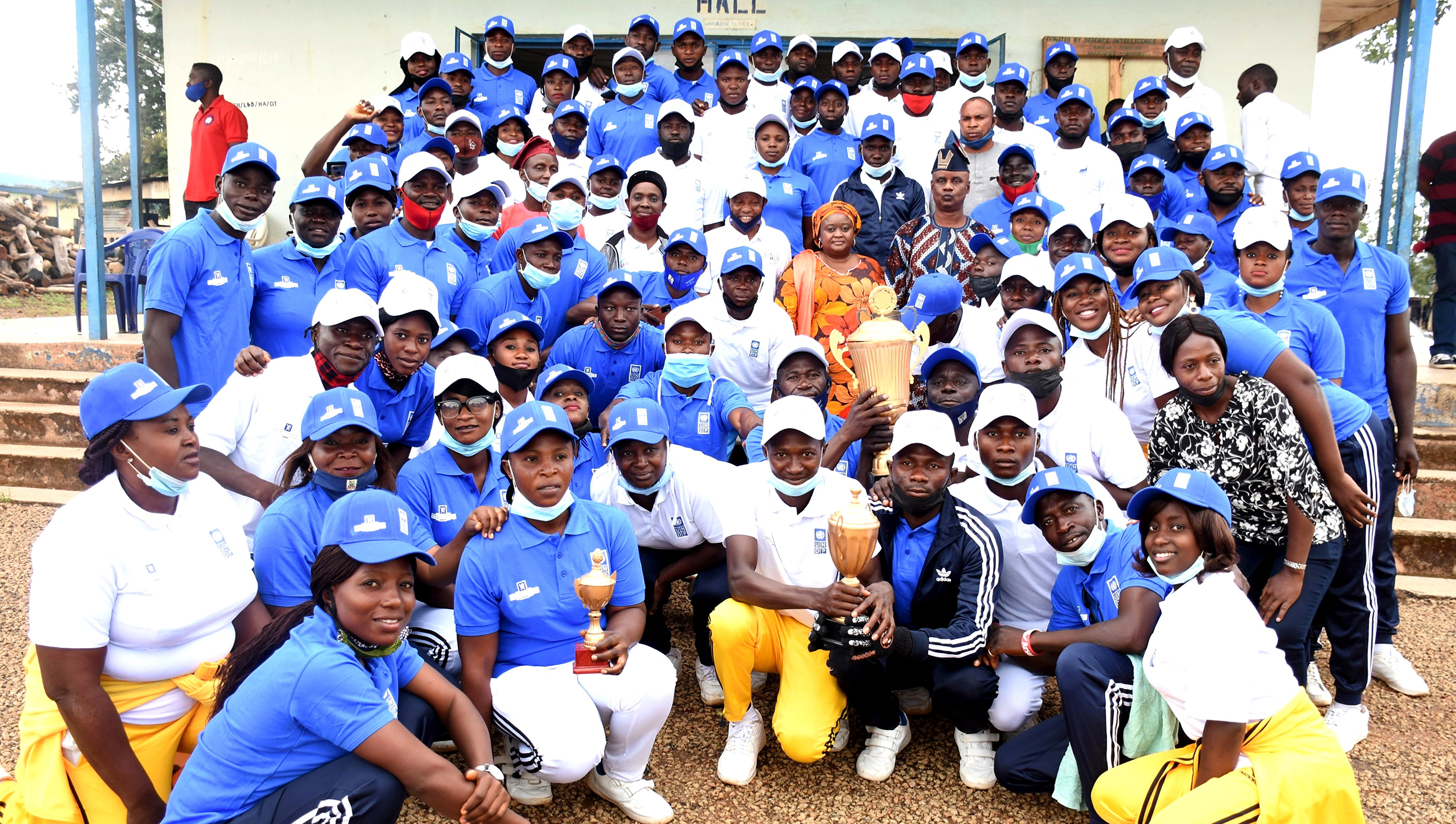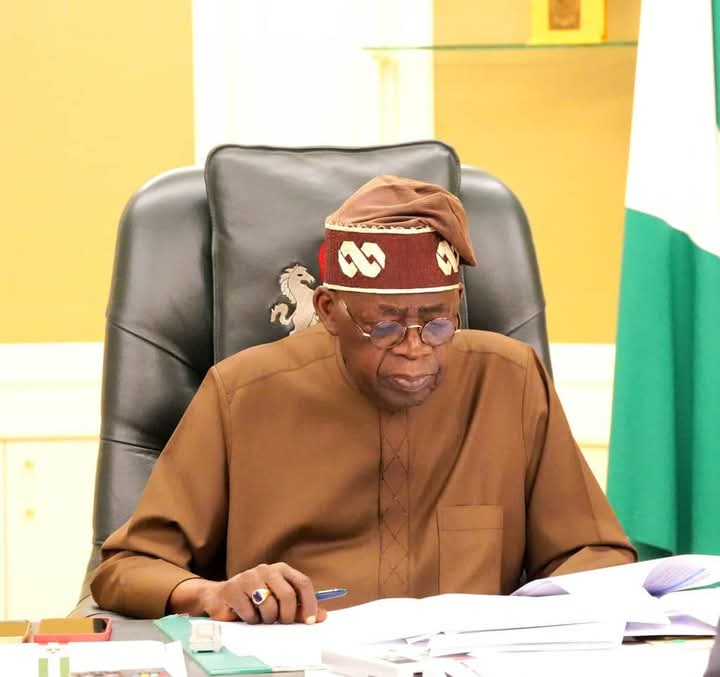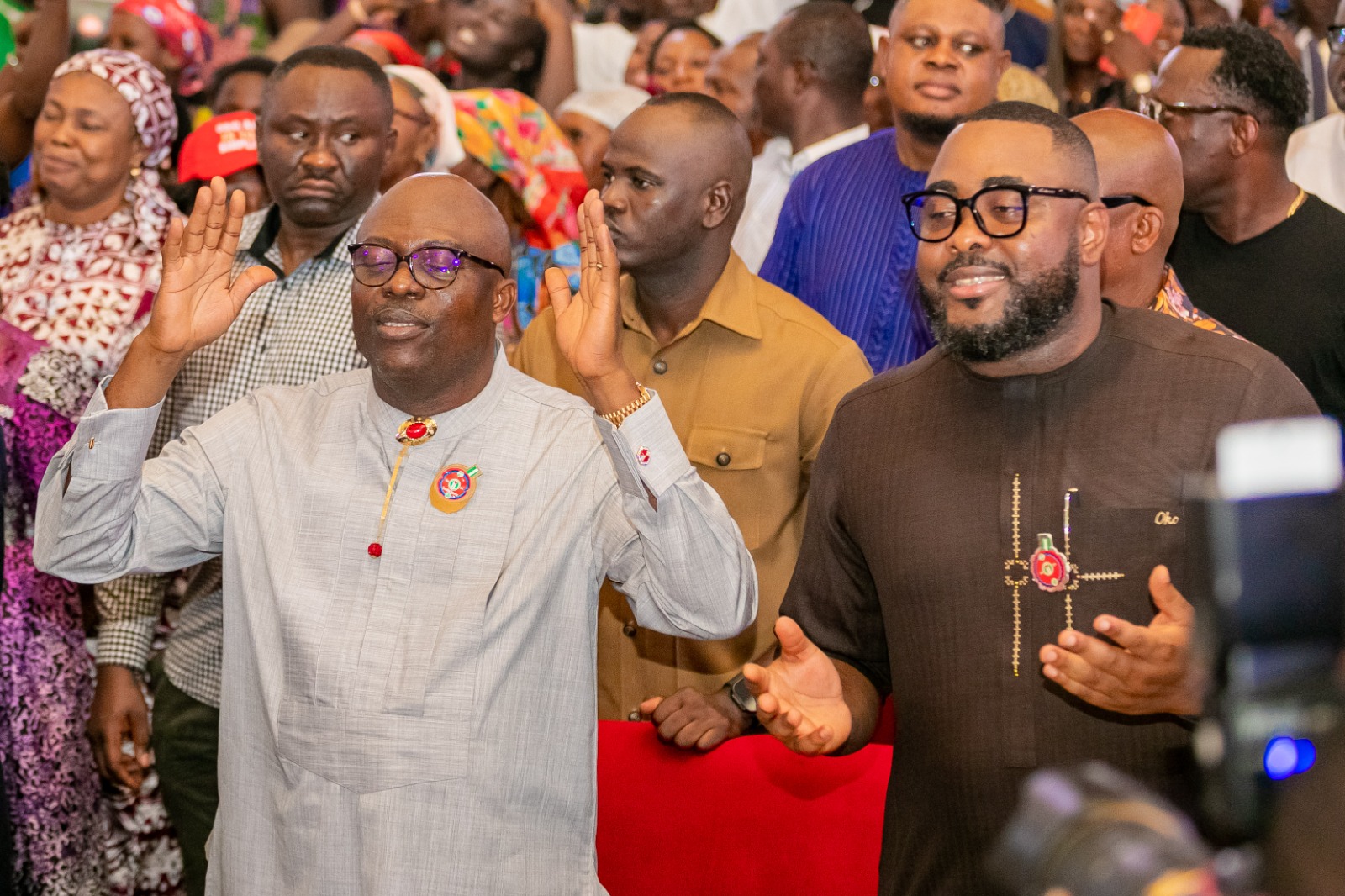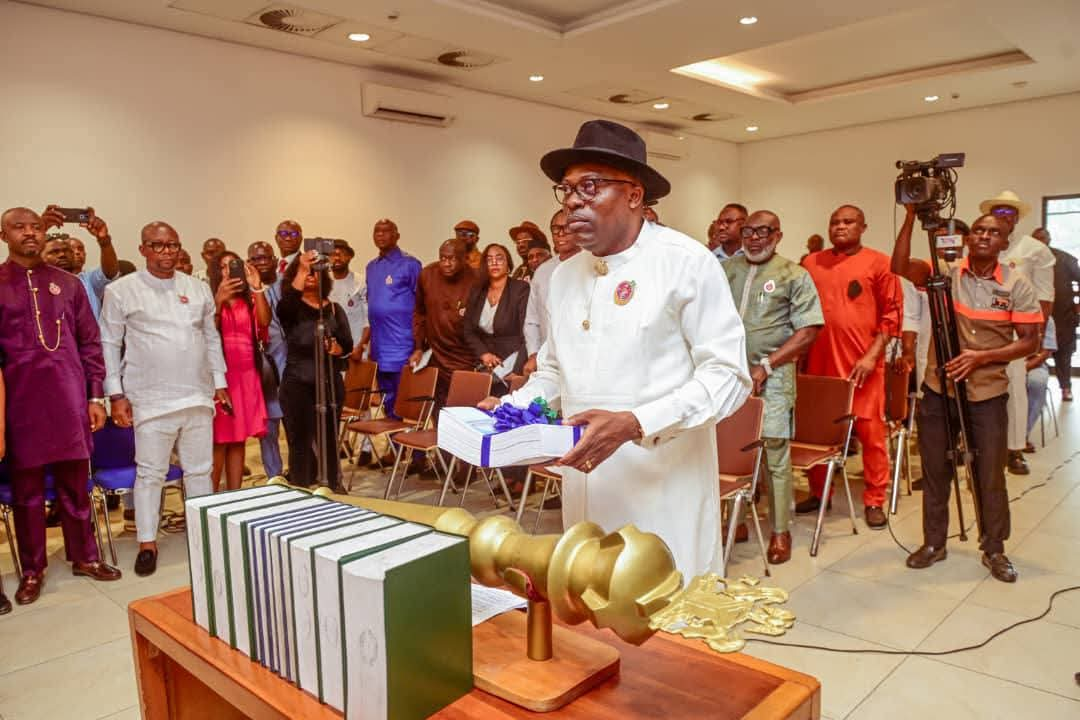Editorial
Still On Chibok Girls, Other Kidnap Victims

More than six years after the abduction of 276 students of the Government Girls’ Secondary School
(GGSS), Chibok, in Borno State, in April 2014, Ruth Ngladar Pogu, one of the abductees, returned home last year with two kids. Ruth and her husband were reported to have surrendered to Nigerian troops on July 28, 2021, at a location in Bama, Borno State.
Nigeria’s troops also found two kidnapped former Chibok schoolgirls, Mary Dauda and Hauwa Joseph. The two women each carried babies on their laps as they were introduced by the military. Major-General Christopher Musa, the military commander of the troops in the region, told journalists that the girls were discovered on 12 and 14 June at two different sites. During the 2015 abduction, 57 of the girls bolted, while 80 were freed in exchange for certain Boko Haram commanders detained after negotiations with the Nigerian government.
After the abduction in the Chibok School, jihadists executed several mass kidnappings and deadly incursions on schools in the North-East. In 2018, Islamic State West Africa Province (ISWAP) fighters captured 110 students of Government Girls Science and Technical College (GGSTC), Dapchi, in Yobe State. All the schoolgirls were emancipated a month later, except for Leah Sharibu, the only Christian among the girls, who was held in custody by the group for refusing to give up her faith.
President Muhammadu Buhari reacted to the Chibok abduction saga: “How can 219 girls be missing in our country, and our leader appears incapable of action?” He had asked in January 2015 while criticising then Nigerian President Goodluck Jonathan over the abduction of the Chibok girls. Seven years later, five times as many students were kidnapped under Buhari’s watchful eyes, a blow to the goodwill on which he rode to power. Nigeria’s future is at stake, as children are not safe, even in their schools, and that is a major concern.
No fewer than 881 students have been kidnapped since the current administration assumed leadership in 2015, findings by the International Centre for Investigative Reporting (ICIR) have shown. Buhari had floundered to win the presidential seat three times until he eventually earned it in the 2015 presidential election. The thrust of his campaign to Nigerians was to tackle insecurity, apart from combating corruption and boosting the economy. Unfortunately, those promises proved unavailing.
According to a distinct report, at least 3,478 people were abducted across the country between December 2021 and June 15, 2022. The figures were encompassed in the daily incidents recorded by the Nigerian Security Tracker, a project of the Council on Foreign Relations, a United States think-tank, during the reporting period. The data captured included people extirpated by non-state actors like terrorists, bandits, armed men, armed robbers, cults and security agents, among others.
The data also demonstrated that as of December 2021, as many as 342 innocent Nigerians were exterminated and 397 kidnapped. Among the people annihilated that month were 45 farmers in Nasarawa State. As well, 34 women were abducted from Zamfara. In January, more than 844 persons were killed and 603 kidnapped by non-state actors. Incidents during the month included the bandit attack on communities in Zamfara, killing over 200 people. Besides, suspected bandits reportedly murdered 220 persons and kidnapped 200 others in Niger State.
In addition, last February, at least 495 people were gruesomely slaughtered, while 326 were kidnapped. Still within the month, bandits attacked a Zamfara community for failing to pay a N40 million levy and killed 33 victims. The terrorists also slaughtered 44 people and abducted 31 others in Niger State. In March, 606 innocent people were extinct and 450 were abducted. The incidents included the murder of 63 vigilantes in Kebbi State by terrorists and attacks by suspected herdsmen in reprisal which claimed over 26 lives in Taraba. The list is endless.
In the South-West and South-South, the perpetrators were identified as cultists, suspected herdsmen and gunmen, while in the South-East, the number of deaths and abductions was mostly imputed to the Indigenous People of Biafra (IPOB) and its militia wing, Eastern Security Network. Terrorist attacks, kidnappings and all forms of insecurity are on the rise and have abruptly become an appealing endeavour. Recent reports have revealed that from June 2011 to March 31, 2020, at least $18.34 million was paid to kidnappers as a ransom.
Even more bloodcurdling is that the larger segment of that figure – just below 11 million dollars – was paid out between January 2016 and March 2020, indicating that kidnapping is becoming more financially rewarding. In March, this year, hundreds of passengers were carried off, and several others were injured in Dutse, Kaduna State, by bandits who allegedly bombed an Abuja-Kaduna-bound train. About 970 passengers were reported to have been taken into the forest by the rampant bandits.
The failure of the government to rescue the remaining passengers of the ill-fated Abuja-Kaduna train, months after their abduction, validates the growing enervation of the Nigerian state in the face of an existential challenge from non-state actors. Emboldened, the terrorists posted pictures and videos of their victims online, taunting family members of the kidnapped and the government. Buhari should acquiesce that the Nigerian state and its security forces have been exceedingly weakened and require radical reform.
Some inexorable facts glower Nigerians in the face – the security agencies are over-stretched, ill-motivated and uncoordinated. A number of agents are compromised. They cannot be used (as former Defence Minister Theophilus Danjuma said) to protect citizens against buccaneers. Secondly, Buhari’s modus operandi in dealing with insecurity has waned miserably. Dysfunctional and corrupt delinquency among political and general leaders keeps Nigeria infallibly on the path of state failure. An effective new counter-insurgency strategy is thus imperative.
While Buhari was issuing unavailing rescue orders and holding otiose meetings with security agency heads, the terrorists were sure-footed. Boko Haram acknowledged responsibility; the bandits issued glowing videos and photographs demanding ransom and threatening to kill the hostages. Covertly, they uploaded photos of a baby born in captivity by one of the two pregnant women amongst the captives. Nigeria has never had it so bad.
With less than a year left, Buhari must use the remainder of his term to assuage the pains of Nigerians on many fronts following poor governance. He must reverse “abnormal and deviant political practices” that keep preventing the nation from progressing. Importantly, he must ensure the release of all kidnapped persons across the country, in keeping with his 2015 election promise. Specifically, he should ensure the timely rescue of the remaining 51 passengers of the Abuja-Kaduna train and Leah Sharibu, the Dapchi schoolgirl. That is the only way the President can guarantee a dignified exit.
Editorial
No To Hike In Telecom Tariffs

Nigerians are outraged by the Federal Government’s approval of a 50 per cent increase in telecommunications tariffs, with organised labour threatening to mobilise workers to boycott telecom services. The Nigeria Labour Congress (NLC) and the Trade Union Congress of Nigeria (TUC) have described the upcoming tariff as outrageous, lamenting that it will worsen the already harsh living conditions of workers and the masses.
Similarly, the Coalition of Northern Groups (CNG) rejected the hike, stating that it was ill-timed and did not take into consideration the struggles of Nigerians. The Human Rights Writers Association of Nigeria (HURIWA) also criticised the review, calling it an illegal, unconstitutional, and oppressive policy that undermines the fundamental rights and freedoms of Nigerians. It is a difficult moment for the industry.
Recall that the Nigerian Communications Commission (NCC) approved a 50 per cent increase in tariffs for telecom operators last Monday, instead of the 100 per cent raise that operators had requested. This decision quickly angered the consumers’ association, which criticised the government’s approval as not only punitive but also insensitive.
We wholeheartedly agree with the stance of labour and other groups on this very sensitive matter. We unequivocally condemn the 50 per cent increase in telecom tariffs. Though telecom operators cite higher operational costs and inflation as reasons for the hike, the timing and impact raise serious concerns in the current economic situation. It is a blatant attack on the well-being of the Nigerian worker and a betrayal of the people to corporate interests.
Telecommunication services are essential for daily communication, work, and access to information. However, the average Nigerian worker already spends approximately 10 per cent of their wages on telecom charges. For a worker earning the current minimum wage of N70,000, this means an increase from N7,000 to a staggering N10,500 per month or 15 per cent of their salary, a cost that is unsustainable.
This hike exemplifies the government’s apparent ease in prioritising corporate profits over citizens’ welfare. It is shocking that the government approved a 50 per cent tariff increase for telecom companies within a month, yet took nearly a year to approve the recent minimum wage for workers, despite the rising cost of living and inflation eroding purchasing power.
The questions are: When will the government stand up for the citizens it swore to protect? When will the National Assembly rise to its responsibility and hold the Executive accountable for policies that blatantly undermine the welfare of the majority? When will the common man finally heave a sigh of relief in Nigeria? We urge the government, the NCC, and the National Assembly to review the implementation of this ill-advised increase.
It is difficult to understand the state of mind of the managers of the nation’s economy. Sadly, these managers have alienated themselves from the reality of today. How can a government approve a 50 per cent hike in the tariff of telecom services when even the N70,000 minimum wage has been eroded by inflation, electricity tariff hikes, exorbitant fuel costs, transportation, and other social services?
Even if there is a need for an increase, why does it have to be 50 per cent? If, after dialogue, it is agreed that a raise is necessary, we should all consider a more reasonable increase rather than the 50 per cent hike. Fifty per cent is excessive and will only worsen the already harsh living conditions of workers, placing a heavier burden and more suffering on them and the general population.
The recognition of telecommunication services as essential components of modern society cannot be overstated. In an era characterised by rapid digital transformation, these services are fundamental not only for personal communication but also for facilitating broader socio-economic engagement. The proposed tariffs increase in the telecom sector raises critical concerns regarding equitable access to vital services that support communication, education, healthcare, and commerce.
In a democracy, the people should be the central focus of all government actions and policies. Every decision should aim to improve their quality of life. This plan must be carefully scrutinised with the welfare of citizens in mind. An increase in telecom tariffs will negatively impact many Nigerians, as the internet has become an essential tool for business, communication, and daily activities.
The Tide calls for the immediate suspension of the 50 per cent hike in tariffs. Instead, we recommend a more reasonable adjustment of a maximum of 10 per cent, which balances industry sustainability with the current economic realities in the country. We also demand that the NCC engages in genuine, inclusive consultations with consumer advocacy groups, civil society organisations, and other grassroots stakeholders before implementing any tariff adjustments.
Editorial
Hurray, Siminalayi Fubara Is 50!

Born on January 28, 1975, in Opobo Town, Mr. and Mrs. Joseph and Love Fubara welcomed their second of five children and first son. His father, a former soldier who completed an overseas training tour of duty, instilled in him a strong sense of discipline and dedication. His mother, a civil servant, taught him the importance of hard work and perseverance.
He received his primary education at Opobo Primary School and continued his studies at Comprehensive Secondary School in Opobo. His passion for numbers led him to pursue a degree in Accountancy at the then Rivers State University of Science and Technology, now known as Rivers State University.
Upon completion of his Bachelor’s degree, he pursued further education and obtained a Master of Business Administration (MBA) and a Master of Science (MSc) from the prestigious University of Port Harcourt in 2013 and 2016, respectively. Fubara’s dedication to his studies and his commitment to personal growth have shaped him into the accomplished individual he is today.
Sim, fondly called by his colleagues, started his career in 2003 as a principal accountant at the Rivers State Senior Secondary Schools Board. His dedication led to his promotion to Director of Finance and Accounts at the Government House in 2015. In March 2020, he was appointed Permanent Secretary and then became the Accountant-General of Rivers State on December 23, 2020.
His achievements are numerous, as he is a Knight of the St. Christopher (KSC) Order of the Church of Nigeria Anglican Communion. Additionally, he holds the prestigious traditional chieftaincy title of Amaopusenibo of Opobo Kingdom. The Governor’s commitment to family is evident through his marriage to Valerie Ibiere Fubara, with whom he shares three beautiful children.
Among Siminalayi’s other significant qualifications and accomplishments are his fellowship with the Nigerian Institute of Management and his fellowship with the Association of National Accountants of Nigeria (ANAN). He holds membership in the Chartered Institute of Forensic and Investigative Auditors. His impressive background has gained him the trust and support of the Peoples Democratic Party (PDP), leading to his victory in the party’s governorship primaries for the 2023 general elections.
Fubara embodies a leadership style defined by simplicity and compassion. He exhibits patience, confidence, and empathy in his interactions with those he serves. His humility and faith in God make him trustworthy. Representing the younger generation, Sim leads with the slogan “Consolidating and Continuing the New Rivers Vision,” focusing on developing infrastructure, healthcare, education, security, agriculture, and investment opportunities for Rivers State.
The bravery exhibited by His Excellency in resisting godfatherism has attracted respect from a wide array of Nigerians, Africans, and supporters of democracy around the world. He emphasises serving the interests of the people of Rivers over any godfather. His actions unify diverse groups in the state, promoting a sense of belonging among various ethnicities.
Our affable Governor exemplifies robust moral leadership rooted in his Christian beliefs. As a devoted Knight, he shows compassion and selflessness in his governance. He fosters an environment where all religions can peacefully coexist. Fubara sponsored Muslim pilgrims for the 2024 Hajj and personally wished them well, encouraging them to pray for the state and Nigeria. His religious tolerance has earned him respect among Nigerians who value coexistence.
Moreover, the Governor’s appealing physique and charming smile have garnered admiration from many Nigerians, who view physical beauty as a reflection of inner qualities. His tall stature has solidified his status as a revered figure, commanding respect across the nation. Fubara has shown dedication to women’s issues by initiating several programmes in collaboration with the Women Affairs Ministry and the Office of the First Lady, highlighting his strong commitment to women’s empowerment and gender equality.
Sir Fubara has focused on actively involving young people in his governance by launching entrepreneurship and training schemes, notably the Rivers State Youth Empowerment Scheme. His efforts to support youth have earned him the backing of many young Nigerians. Additionally, he provides scholarships and makes donations to orphanages, demonstrating his commitment to investing in education for the benefit of children in the state.
Known for his strong commitment to national unity, this Governor reaches out to Nigerians from various backgrounds. As a state Governor, he demonstrates great nationalism by supporting citizens from other states, especially in Rivers. He respects the rule of law and democratic values, which has enabled past local government chairmen to complete their terms without issues. His effective management of Rivers State’s resources promotes transparency and accountability.
Despite facing numerous distractions, the Rivers Chief Executive has made remarkable strides in steering the state’s affairs, reflecting his unwavering focus and commitment to delivering results. He has encountered challenges but remains dedicated to his vision for a better state. His peaceful and caring leadership style has made him popular, inspiring new leaders to emulate similar qualities. By being strong yet compassionate, he has redefined the concept of leadership. Fubara’s selfless nature prioritises the state’s needs above his own. This has earned him widespread support.
As he commemorates his Golden Jubilee birthday today, even the most ardent critics, adversaries, and accusers cannot overlook that he embodies a worthy precursor in every sense.
Happy Birthday, His Excellency!
Editorial
Fubara’s 2025 Budget Of Inclusive Growth

-
Niger Delta5 days ago
D’Gov Tasks APWEN, Others On SMART Goals
-
Nation4 days ago
50% Telecom Tariff Hike: NLC Fixes Date For Nationwide Protest
-
Niger Delta4 days ago
Dep Gov Tasks Perm Secs On Collaboration, Productivity
-
Business4 days ago
$1trn Economy: LCCI Advocates More Investments In Telecom Infrastructure
-
News5 days ago
TotalEnergies On Red Alert As Ekpeye Monarch Dissolves UCA
-
Rivers4 days ago
RSG Seeks Stakeholders’ Collaboration For Women, Children Improvement
-
Niger Delta5 days ago
Speaker, Delta Assembly urges NUJ to check quacks
-
Nation4 days ago
UNIZIK Lecturers Protest Non-Payment Of Salaries For Five Years

